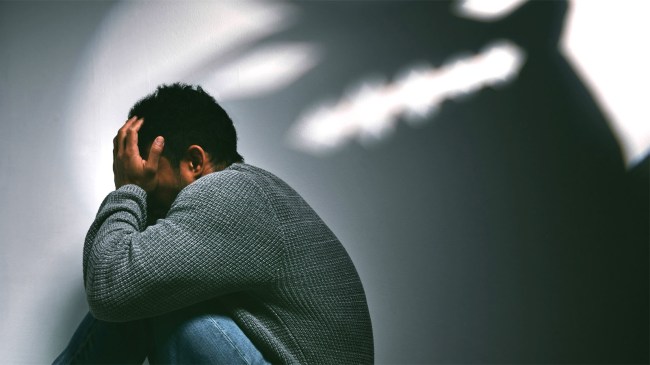iStockphoto
A man’s brain condition, a rare visual disorder known as prosopometamorphopsia (or PMO), turns every face he looks at into what appears to be some sort of demon.
Making matters somehow even worse, this 58-year-old man, Victor Sharrah, didn’t have this problem for the first 55 years of his life.
It was in November of 2020 that Sharrah first starting seeing the faces of demons everywhere he looked.
“I just woke up and was sitting on the couch watching TV when my roommate came into the room, and (looking at him) I’m like, ‘What am I seeing?’ Then his girlfriend walked in and her face was the same,” Sharrah told CNN.
“I tried to explain to my roommate what I was seeing, and he thought I was nuts. Then I went outside and all of the faces of people I saw were distorted and still are.”
According to a study of his rare condition recently published in The Lancet, “the patient stated that the distortions — severely stretched features of the face, with deep grooves on the forehead, cheeks and chin — were present on every person’s face he encountered, but he reported no distortions when looking at objects, such as houses or cars.”
Weird, right?
Thankfully, despite the distortions, he says he can still recognize who people are.
Another oddity with his condition is that it only affects him when looking at someone’s face directly. He can view a photo of someone and their faces look totally normal.
There is no known cure for his condition, nor does anyone know exactly what causes PMO, which is one example of what’s known as Alice in Wonderland syndrome.
It has been speculated that everything from epilepsy and head trauma to stroke, migraines, bipolar disorder, PTSD, or even a toxic dose of carbon monoxide might cause it.
In Victor Sharrah’s case, the researchers believe it may come down to a one centimeter non-cancerous lesion on the upper left of his hippocampus (the left side of his brain) that was spotted in an MRO scan.
While they haven’t found a cure for Sharrah’s PMO, he is just glad that someone is working with him to try and find one.
“I almost had myself committed to a mental hospital,” he told CNN. “How many other people are institutionalized and being put on anti-psychotics when they’re not psychotic?”

